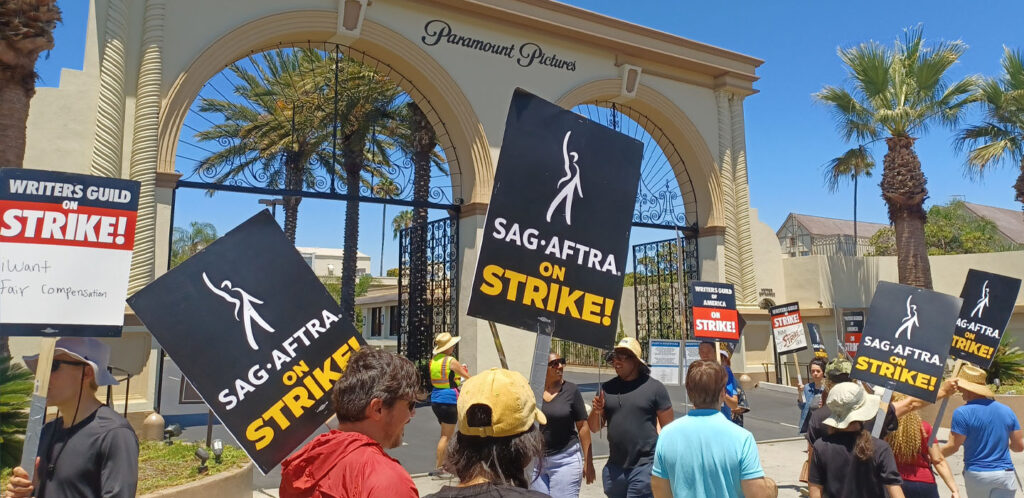To the average moviegoer, stars like Tom Cruise, Margot Robbie, Harrison Ford and Ryan Gosling aren’t exactly hurting financially, commanding multimillion-dollar paychecks. And assuming their agents are doing their jobs, these stars should have backend gross or net points (a share of the box office ticket sales) as well.

But that’s not what this strike is about. Back in the 1960s, the hit TV series GILLIGAN’S ISLAND highlighted the problem then that actors were not getting any residual payments for re-runs on TV. None of the cast of GILLIGAN’s ISLAND made any money from the extraordinarily successful show while its producers made millions.

photo: John Gomez , Dreamstime
Eventually, the contracts were renegotiated to pay actors residuals for re-runs on network television. An example would be the former child star Frankie Muniz of MALCOLM IN THE MIDDLE who earned $150k an episode and with union royalty rates, additional residuals for re-runs estimated at $10 million a year. That’s for the star of a hit TV series. How about the actor who has an occasional, re-occurring role? Well, the residual rate would be scaled accordingly.
Fast forward to the last few years when network television has now been swept aside by streaming networks like HBO, Hulu, Netflix, and Paramount+. The actor’s contracts don’t include re-runs on streaming channels, so although there’s a paid library to access all of the episodes of THE OFFICE on PEACOCK, none of the residual rates from network TV apply. Recently on CBS, 2 of the stars from ORANGE IS THE NEW BLACK showed their residual checks totaling $27 a year!
So, obviously, the contracts need to be re-negotiated to address the new world of streaming content. But another hot point is the looming use of Artificial Intelligence (AI) in the entertainment industry.
Visually, we’ve seen this when dead celebrities are brought back to life on screen – think Carrie Fisher and Peter Cushing in STAR WARS ROGUE ONE. Think of the celebrities digitally reanimated in THE FLASH like Christopher Reeve, George Reeves, etc. What are the ethics of using AI to re-create a performance based on their old performances? And did their families consent? Were they compensated?
AI is opening up new possibilities in content, but the animator or “writer” is still asking the AI engine to copy a previous look or style. “Write me a script in the style of Quentin Tarantino” or “Animate a life-like recreation of Frankie Muniz.” Who should get the credit and compensation for this?
Back in 1997, the Dirt Devil vacuum cleaner company was blasted by the family of Fred Astaire. The company used his image in a computer-generated commercial of Astaire dancing with a vacuum cleaner. Astaire’s daughter, Ava, said, “My father was very careful that the few commercials in which he did participate during his lifetime would in no way tarnish his image and I am saddened that now something over which he has no control has attempted to do so.”
The WGA and SAG-AFTRA strike is determined to update these contracts to answer these questions of ethics and compensation. They may be late to the table, but at least they’re finally raising these issues before it’s too late.
How can fans support this strike?
Consider donating to the Entertainment Fund – click here!
Support writers and actors on social media and tag a network or streamer to let them know the audience wants original entertainment made ethically!




